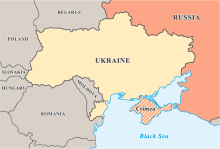
Russia-Ukraine
As the Russia-Ukraine situation drags on, there is concern that a significant market reaction will occur if there is a conflict. This is a reasonable assumption and we expect that to be the case.
The question for us is how long will that impact last? A recent Reuters article highlighted past crises and why it might not be as much of a long-term impact of some people fear. Excerpts listed below.
***
Begin quote
As markets churn over Russia-Ukraine conflict, history shows fleeting impact
By Lewis Krauskopf
NEW YORK, Feb 14 (Reuters) - Worries over a potential Russian invasion into Ukraine could fuel stock weakness over the short-term, but most U.S. market fallout related to geopolitics is likely to be short-lived, if history is any guide.
With the S&P 500 down over 7% to start the year and bond yields spiking, concerns about a hawkish turn by the Federal Reserve in its fight against surging consumer prices stand to remain at the forefront of investors' minds this year, even as developments overseas could rattle markets in the near term.
"The equity markets are more at risk from the fallout from the war on inflation than on a potential invasion of Ukraine," Sam Stovall, chief investment strategist at CFRA, wrote in a note to investors.
Stocks have been hit in recent days and investors have rushed to safe-haven assets amid rising worries over a potential conflict in Eastern Europe. On Monday, the S&P 500 last was down 1% in choppy trading.
Past ructions from geopolitical events have been comparatively fleeting, CFRA’s research showed. The firm analyzed 24 events since World War II, finding the S&P 500 fell on average of 5.5% from peak to trough in the aftermath of those events.
The market took an average of 24 days from the start of the event to reach a bottom, but it recouped those losses in an average of 28 days later, according to Stovall.
Truist Advisory Services, meanwhile, reviewed 12 historical events, including the 2003 Iraq War, 1979 Iranian hostage crisis and the 1962 Cuban missile crisis. The S&P 500 was higher a year after those events in nine of the 12 times, with an average gain of 8.6% – perhaps not surprising for an index that has gained about 4,000% since 1980.
“When you look at the history of geopolitical events, they tend to have a short-term impact on the markets, and as long as they don’t drive you into recession, then the markets tend to rebound," said Keith Lerner, the firm's co-chief investment officer.
"The conclusion is that we don’t think investors should overreact to this situation by itself.”
End quote
***
The opinions expressed herein are provided for informational purposes only and are not intended as investment advice. All investments involve risk, including loss of principal invested. Past performance does not guarantee future performance. Individual client accounts may vary. Although the information provided to you on this site is obtained or compiled from sources we believe to be reliable, Destination Wealth Management cannot and does not guarantee the accuracy, validity, timeliness or completeness of any information or data made available to you for any particular purpose. Any links to other websites are used at your own risk.

